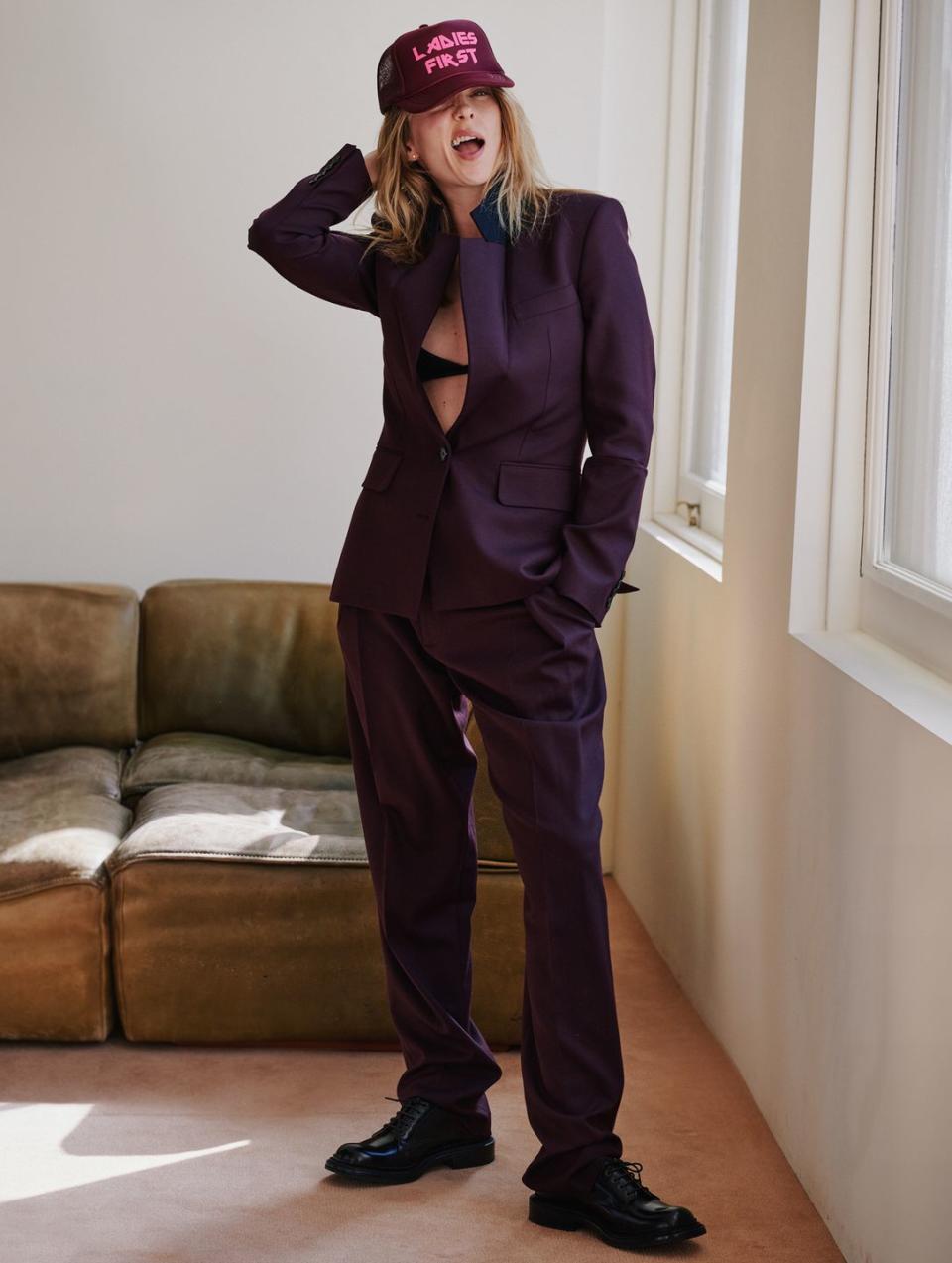Afua Hirsch On Trump, Diddy, Tate And The Widening Political Gender Divide

On a recent trip to New York, a male friend said something so shocking, I had to ask him to repeat it. He lamented that Diddy, the rapper currently indicted for sex trafficking and abuse crimes, the victim of a 'witch-hunt'.
I wasn’t shocked because I personally know Diddy’s innocence or guilt, the allegations against him - including racketeering, rape and sex trafficking - have yet to be tested in court. I was shocked because my friend believed that when a man is on trial in the court of public opinion, a female jury cannot be trusted. The world has become prejudiced against men, he suspects, and whatever the merits of this particular case, wrongs will inevitably be done.
It's this kind of suspicion that explains why men, including my friend, are increasingly turning towards right-wing politics. Of course each generation has real and present woes - inflation and slow economic growth, the difficulties of securing housing and stable, well-paid jobs. But each generation is not actually generation anymore, it is two. Gen Z for example, has split in half. Boys and men are now more likely than older generations to believe that feminism has done more harm than good. Their female peers think the opposite.
FIND OUT MORE ON ELLE COLLECTIVE
The 'great gender divergence' as it’s being described, is not just an abstract phenomenon, but a yawning chasm in very real voting habits. In the US, the latest polls show Trump leading by eight points among men, and Harris by nine points among women – a 17 point difference that cannot just be explained by race, class, or age.
Nor is it only an American phenomenon. In Germany, a 30-point gap opened up between young men and women. In the UK the gap is 25 points. In Poland the right-wing Confederation party attracted almost half the votes of young men, and only a sixth of those of young women the same age.

In Scotland, researchers interviewed young men, many of whom were out shopping, as to why this was happening. 'Men feel threatened,' said one, 'that’s why they are turning to more conservative role models'. A young woman standing next to her boyfriend added, 'we are more strong-minded these days and more independent. I don’t think a lot of men like that.'
Women may be more strong-minded, but that hasn’t protected us from male power. The Diddy allegations, and his assault ex-girlfriend Cassie which we witnessed after it was caught on camera, are a visceral reminder of male violence. In Britain, police recently described a 'national emergency' linked to the 'terrifying' socialisation boys are experiencing online at the hands of influencers like Andrew Tate. Child protection charity the NSPCC estimated at least one in 12 women in England and Wales would be a victim of violence every year - or about two million women.
Even France, notorious for its dismissive attitude of sexual abuse, and somehow relatively unscathed by the #MeToo movement, has been forced to confront the scale of the problem. The case of Gisèle Pelicot, the 72-year-old wife, mother and grandmother who was allegedly drugged, rendered unconscious and raped by more than 80 men while her husband filmed the ordeals, has thrown a grenade into complacency about who both the offenders and survivors of sexual violence are. The truth is hard to compute. They are ordinary people in ordinary places committing acts of unspeakable violence in our midst.

As men and women’s voting patterns pull apart, its tempting to read it as a a kind of referendum on female equality; where women vote in favour and men vote against. But the truth is more complex and perhaps even more uncomfortable.
Men still earn significantly more than women – in the UK that gap stood this year at 14%. But in Britain, young people are now for the first time less likely to do better than their parents, their prospects having dramatically declined in recent years. In the US, men’s earnings have fallen in the last 40 years — meaning they make less than their fathers and grandfathers.
This same generation has been socialised more than any other to desire a greater share in the gains of globalised capitalism, with social media promising opportunity, stimulating consumer desires, while encouraging traditional forms of masculinity, in which a man should provide. Women meanwhile, are still conscious of having to fight for the fragile gains so far made. Its these divergent experiences that appear to be the driving force pushing a broader realignment of young men and women into conservative and liberal camps.
From this angle, the right-wing threat to reproductive rights, the fate of immigrants, gains in racial and social justice, are mere collateral damage in a politics of fear about declining economic gains and competition over scarce resources. Fears that are being deliberately stoked and weaponised against men, radicalising women to stand even more firmly in progressive ideas. it’s a vicious cycle, and like all politics rooted in fear, one which must eventually give way to hope again. The question now is how much damage will be done before we get there.
ELLE Collective is a new community of fashion, beauty and culture lovers. For access to exclusive content, events, inspiring advice from our Editors and industry experts, as well the opportunity to meet designers, thought-leaders and stylists, become a member today HERE.
You Might Also Like


